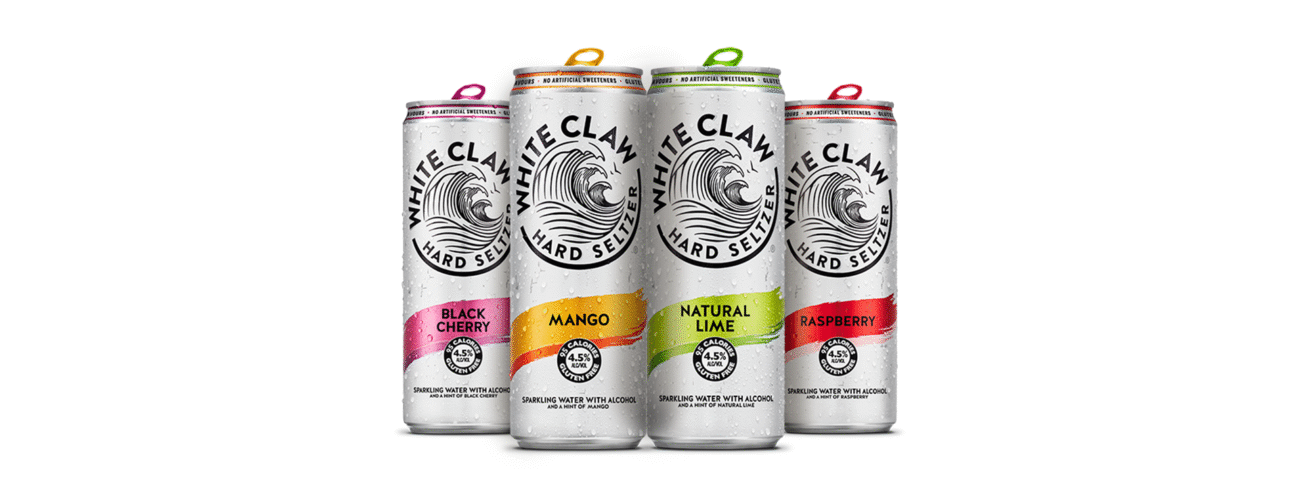White Claw has become one of the most popular alcoholic beverages in recent years, especially among those looking for a lighter alternative to traditional beer or sugary cocktails. Marketed as a hard seltzer, White Claw combines sparkling water, alcohol, and fruit flavoring into a crisp, refreshing drink. But what exactly are you consuming when you crack open a can? Here’s a detailed look at White Claw’s nutrition facts, ingredients, and what they mean for your health and diet.
What Is White Claw?
White Claw is a hard seltzer, a type of alcoholic beverage made by fermenting sugar or malt and then infusing it with carbonated water and natural flavorings. It typically contains about 5% alcohol by volume (ABV) — roughly the same as a standard beer.
White Claw Nutrition Facts (per 12 oz can)
Here are the typical nutrition values for a standard can (flavors may vary slightly):
| Nutrient | Amount |
|---|---|
| Calories | 100 |
| Total Fat | 0g |
| Cholesterol | 0mg |
| Sodium | 20mg |
| Total Carbohydrates | 2g |
| Sugars | 2g or less |
| Protein | 0g |
| Alcohol Content | 5% ABV |
| Gluten-Free | Yes |
⚠️ Note: White Claw’s “Surge” line contains more alcohol (8% ABV) and more calories (typically 220 per can).
Key Nutritional Highlights
✅ Low in Calories
At just 100 calories per can, White Claw is a lower-calorie choice compared to many beers, wines, and mixed drinks.
✅ Low in Sugar
White Claw contains just 2 grams or less of sugar, depending on the flavor, which is significantly less than most traditional cocktails or sweetened drinks.
✅ Low in Carbs
Most flavors contain only 2 grams of carbohydrates, making White Claw a keto-friendly option for those watching their carb intake.
✅ Gluten-Free
White Claw is made without gluten, making it suitable for people with celiac disease or gluten sensitivity.
Ingredients in White Claw
White Claw typically contains:
Carbonated Water
Alcohol (from fermented cane sugar)
Natural Flavors
Citric Acid
Sodium Citrate
No artificial sweeteners or high-fructose corn syrup are used, and the “natural flavors” contribute to the drink’s fruity taste.
Comparison to Other Alcoholic Beverages
| Beverage | Calories (per 12 oz) | Carbs | Sugar | ABV |
|---|---|---|---|---|
| White Claw | 100 | 2g | 2g | 5% |
| Light Beer | 100–110 | 5g | 0–1g | 4.2%–5% |
| Regular Beer | 150–200+ | 10–15g | 0–2g | 5%+ |
| Margarita (mixed) | 200–300+ | 20–30g | 20–25g | 10%+ |
White Claw is often chosen by those who want to enjoy alcohol without excessive calories, sugar, or bloating.
Health Considerations
While White Claw may be a “healthier” alcoholic choice for some, moderation is key. Here are a few points to keep in mind:
Alcohol is still alcohol – Drinking too much can lead to dehydration, liver issues, and impaired judgment.
Empty calories – White Claw offers little to no nutritional value.
Watch for variants – Products like White Claw Surge have more alcohol and calories.
Conclusion
White Claw offers a relatively low-calorie, low-carb, and gluten-free alternative to traditional alcoholic drinks. With just 100 calories and 2g of carbs per can, it’s a popular option for health-conscious drinkers. However, it’s still important to consume it in moderation and understand that, like all alcoholic beverages, it doesn’t provide essential nutrients.
Whether you’re counting calories or just looking for a lighter drink, White Claw may fit the bill — just remember to enjoy it responsibly.

